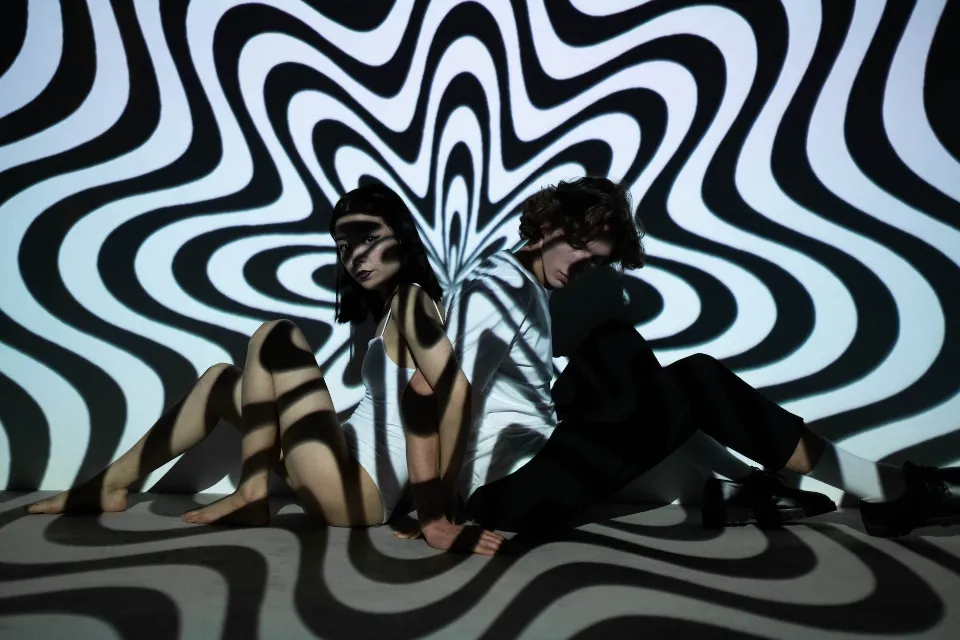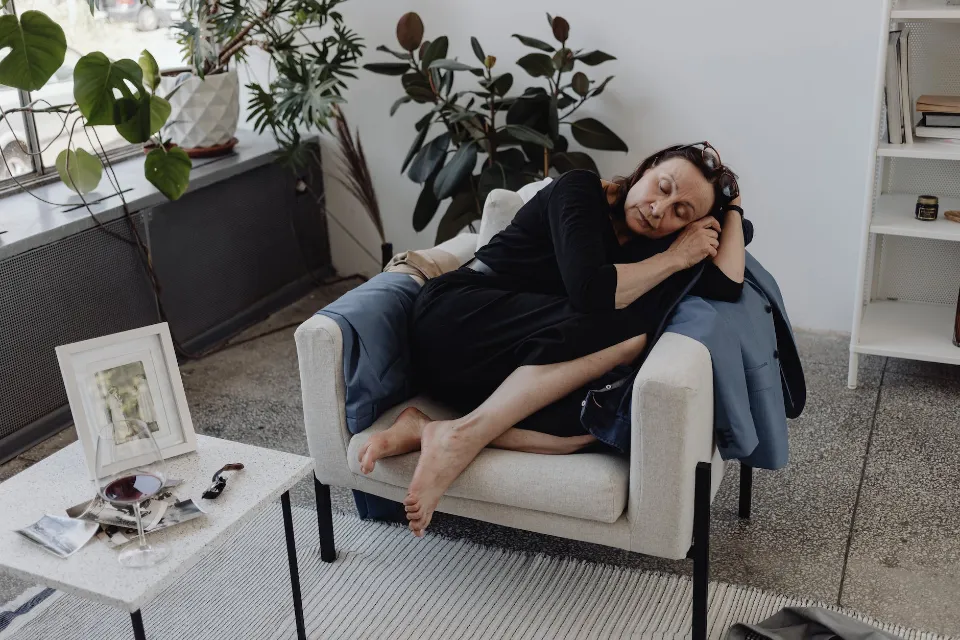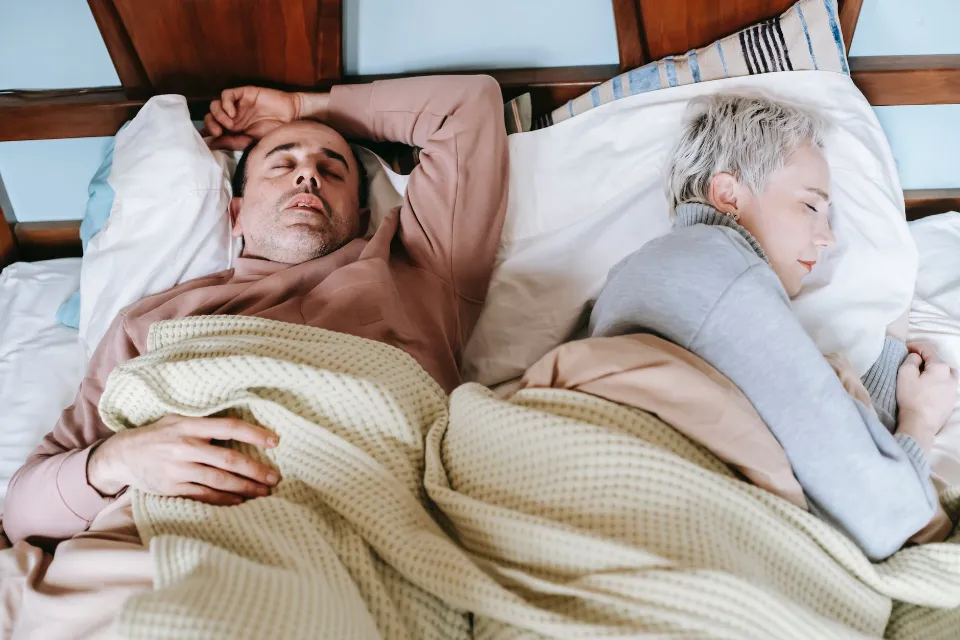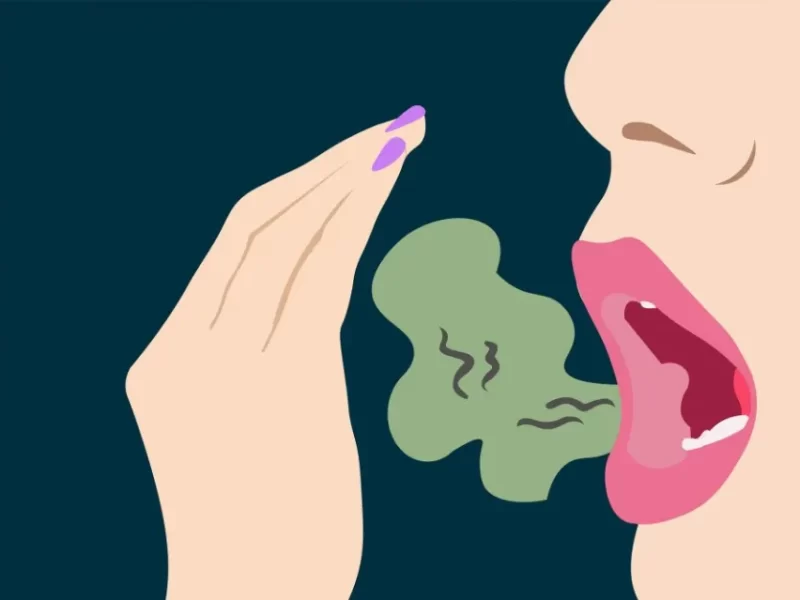Hallucinations can happen to elderly people with a variety of medical conditions. Elderly people who experience hallucinations are less likely to report their symptoms. However, it is crucial for caregivers to comprehend what leads older adults to have nighttime hallucinations.
Whether you are experiencing them yourself or your older loved one is already showing signs, dealing with hallucinations is something that few people think they will ever have to do. But here you are. While hallucinations in elderly adults can be scary, there are often steps you can take to help alleviate them.
Keep scrolling to discover some common causes of hallucinations in the elderly and what steps you can take to help.
Read more: Why Do Old People Moan in Their Sleep—Causes&Treatments – Elder VIP
Causes: What Leads to Hallucinations at Night in the Elderly?
Cognitive Decline
One of the most common sources of hallucinations in the elderly is cognitive decline such as:
- Alzheimer’s disease
- Dementia
- Parkinson’s disease
- General decline due to old age
It is crucial to get the proper care if you or a senior family member has one of the diagnoses. Some may find that extra help around the house and occasional support are more than enough to continue living independently, but this is not always the case.
Visual hallucinations happen in about 18% of Alzheimer’s patients. Most of the time, the hallucinations are harmless and may even give the elderly person comfort. These elderly dementia patients who have hallucinations might see grownups, kids, or animals in space.

Urinary Tract Infections
If a senior in your life suddenly begins having hallucinations without exhibiting any other signs of cognitive decline, you might become alarmed.
But doctors and caregivers who have experienced this know that one of the first things to do in this situation is to check for a UTI. In elderly patients with a UTI, altered mental status is frequently the only noticeable symptom.
In addition to hallucinations, UTIs may cause seniors to experience:
- Confusion
- Agitation
- Dizziness
- Falls; and
- Poor motor skills
Antibiotics can successfully treat this condition, which is a relief.
Related: How to Prevent UTI in the Elderly: Things You Must Know – Elder VIP
Medications
There is evidence that some prescription medications can give older people hallucinations. Commonly used drugs that have the potential to cause hallucinations include opioids, corticosteroids, and antibiotics. Seniors who use over-the-counter medications like herbal supplements or complementary therapies are also at risk.
Sleep Disturbances
Elderly people who have trouble sleeping or who are overly sleepy during the day may find that they have hallucinations.
Nighttime hallucinations in the elderly are also common and may contribute to a lack of sleep which can, in turn, contribute to hallucinations.
Sleep deprivation can cause many health complications such as:
- Weekend immunity
- High blood pressure
- Risk of diabetes
- Memory issues
Elderly people frequently experience nighttime hallucinations, so it’s critical to support them in getting as much rest as they can, even if it means taking a nap during the day.
Charles Bonnet Syndrome
Even in those with cognitive and psychological health, Charles Bonnet Syndrome can cause vivid hallucinations in elderly people. Most elderly people with Charles Bonnet Syndrome who experience visual hallucinations have a central or ocular visual impairment.
Indeed, one or more visual hallucinations occur in about 60% of elderly patients with severe vision loss. The most frequent type of vision impairment associated with Charles Bonnet Syndrome is macular degeneration, but hallucinations can result from any cause of vision loss.
Lack of Sleep
Seniors who don’t get enough sleep may experience nighttime hallucinations. The elderly person may struggle to get a good night’s sleep because of these hallucinations, and the disruptions or lack of sleep may in turn make the hallucinations worse.
Drug Side Effects
While substance abuse does happen and can result in hallucinations in older people, it is less common than it is in younger people. Cannabis, cocaine, hallucinogens, and amphetamines are examples of illegal substances linked to visual hallucinations. Both prescription and illegal opioid drug use are possible.
How to Treat Hallucinations in the Elderly?
Hallucinations can be scary but they are not untreatable. Hallucinations are not a disease; they are typical symptoms. Identifying the underlying cause is necessary before treating hallucinations. Treatment can start after that is completed.
Necessary Response
The first step is to determine whether the hallucination is bothering the elderly adult. It’s possible that you won’t want to react or draw attention to it if it’s pleasant.
Just know and accept that it’s a dementia symptom and thankfully isn’t causing distress. The time has come to intervene right away to comfort them or steer them toward a safe activity if the hallucination is upsetting them or pushing them to act in an unsafe way.
Removal of Triggers
Hallucination triggers can include sounds. Do what you can to reduce or eliminate easily mistakable sounds such as the TV or an air conditioner. Nighttime hallucinations in elderly people are common and this can often be linked to shadows.
Try to minimize shadows because they can easily confuse someone who is prone to hallucinations. Look around and see if there are shadows that look like something specific and do what you can to move objects around to eliminate the shadow.

Keep Calm
When someone is having a dementia hallucination, it’s important to stay calm and avoid contradicting them. They perceive what they are seeing, which is a dementia symptom, as being very real.
Because of the harm dementia has done to their brain, attempting to explain that it isn’t really won’t be effective. They might even become more agitated and upset if they realize you don’t believe them.
It might also be beneficial to comprehend what they’re seeing if they can explain it with enough composure. Pick up any hints they may be giving you by listening intently. But keep in mind that dementia damage in the brain may affect their ability to use the correct words. They might unintentionally refer to green cushions as cabbages, for instance.
Giving Comfort
You should reassure the person who is having a hallucination while remaining composed. Make sure they understand you are there to support them.
If they seem to be gaining joy from the hallucination, you might try saying something like “I can tell you’re content! That what you are going through makes you happy makes me so happy!” If their hallucination is frightening, you might respond with something like “I see that you’re frightened. I’m sorry to hear that you’re going through such a terrifying situation. I am here for you. How can I help you feel safe?” If they seem confused or disoriented, you might respond with “I can tell that you’re perplexed. Please let me know how I can assist you most effectively.”
Helping your loved one through the hallucination can often be as simple as being there for them.
Conclusion
Some types of hallucinations are treatable, particularly when the underlying cause is addressed quickly. To prevent overmedication and lower the chance of prescribing multiple medications, it is critical for caregivers and the medical team to pinpoint the exact cause. The elderly person can feel supported by being acknowledged for their feelings, which can help them feel validated. They could benefit from distractions to divert their focus from the hallucination. Elderly people may benefit from going for a walk, doing a puzzle, getting a snack, or singing their favorite song.
FAQs
Can Hallucinations Go Away Without Medication?
A grieving widower, for instance, might believe he hears his wife’s voice for a few weeks after her passing. These hallucinations typically go away on their own and are not normally indicative of mental illness or otherwise a cause for concern.
What Triggers Hallucinations?
Drugs and alcohol. Parkinson’s illness or Alzheimer’s disease. a change or loss of vision, such as the Charles Bonnet syndrome. anxiety, depression or bereavement.



